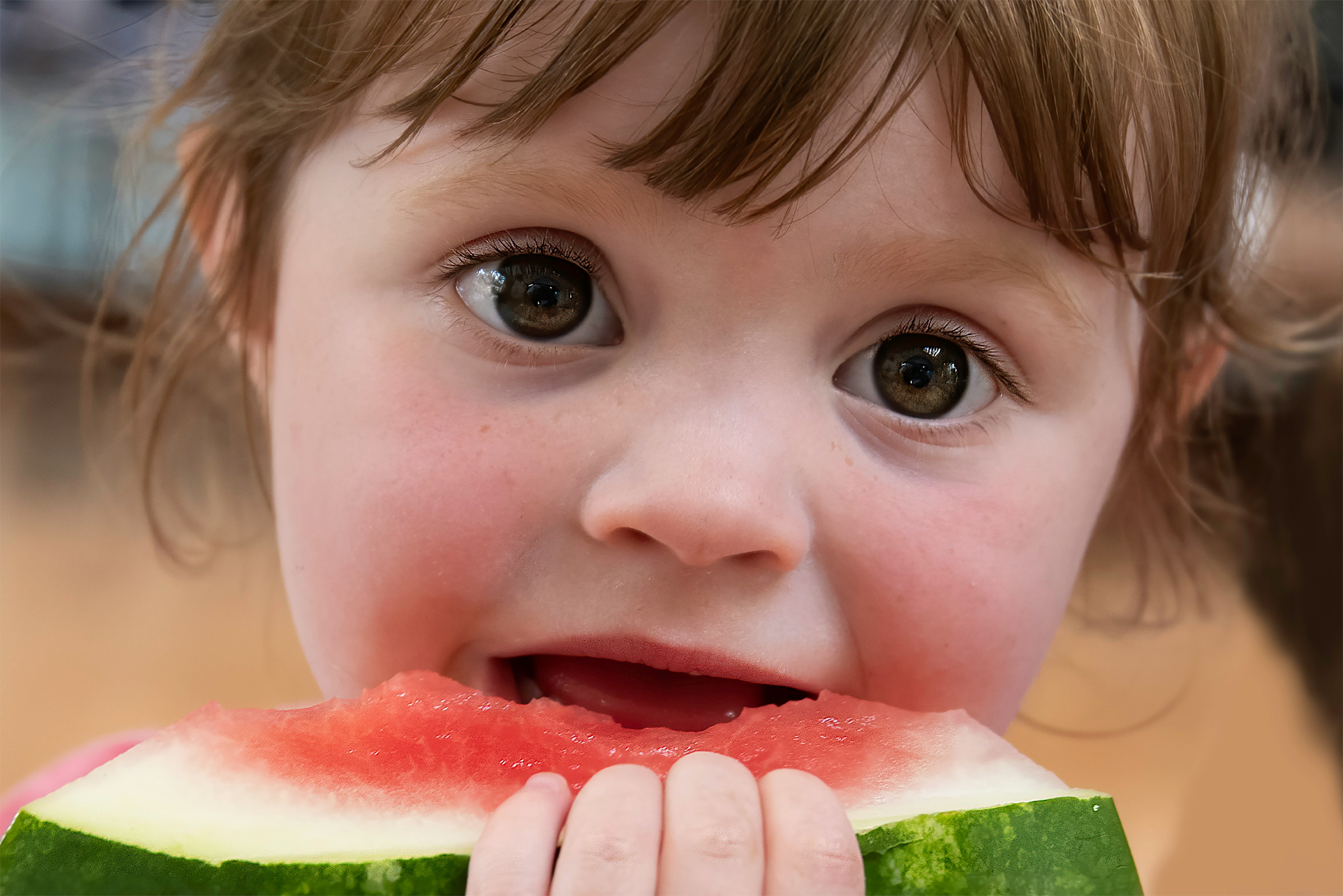When my oldest son was four years old, he was playing one day in our tiny fenced-in yard. I had the front door open and was keeping an eye on him when a service man pulled up in a van and approached the neighbor’s house. I heard my son say hi to him and then ask the man what his name was. “John,” he replied. My son responded in an almost accusatory sing-song voice, “Oh, like John the Baptist?” The young man told my son that he shouldn’t be rude, and although I could understand the fellow’s knee jerk reaction to my son’s mocking tone, I thought that his comment was quite a compliment since John the Baptist is a hero in our family.
Of course my young son did not fully understand John the Baptist’s role, though he knew he was a “good guy” and was Jesus’ cousin, but what I love is the fact that the name of St. John was on my son’s lips. He had an Uncle John and a grandpa named John, but the moment he heard the name John, he thought of John the Baptist. The stories of John the Baptist and other Biblical people, as well as the lives of the saints, modern and ancient, were capturing my son’s imagination.
These stories are life-giving “food” to a child’s soul. Grown-ups have the power and responsibility to supply children with this “food,” so that they can grow strong with a truthful, reality-based perception of themselves, the world, and God. The wrong stories can poison and warp a child. And while there are many quality secular stories offered to our children, the best spiritual nourishment is the organic stuff of salvation history, and what God has been doing in the hearts and minds of real individuals for thousands of years. These stories not only teach children about salvation history, but they also help young people of this generation to believe that God can and will work powerfully in their lives too.
My son is now grown, and his 2- year-old son has been taught about the saints by his own parents. Recently he’s been calling everyone “Faustina.” I couldn’t be happier!
Cuando mi hijo mayor tenía cuatro años, un día estaba jugando en nuestro pequeño jardín cercado. Tenía la puerta de entrada abierta y lo estaba vigilando cuando un hombre de servicio se detuvo en una camioneta y se acercó a la casa del vecino. Escuché a mi hijo saludarlo y luego preguntarle al hombre cómo se llamaba. “Juan”, respondió. Mi hijo respondió con una voz cantarina casi acusatoria: “Oh, ¿como Juan el Bautista?” El joven le dijo a mi hijo que no debe faltar el respeto, y aunque pude entender la reacción instintiva del joven ante el tono burlón de mi hijo, pensé que su comentario era todo un cumplido ya que Juan el Bautista es un héroe en nuestra familia.
Por supuesto, mi hijo pequeño no entendía completamente el papel de Juan Bautista, aunque sabía que era un “buen tipo” y primo de Jesús, pero lo que me encanta es el hecho de que el nombre de San Juan estaba en labios de mi hijo. Tenía un tío Juan y un abuelo llamado Juan, pero en el momento en que escuchó el nombre de John, pensó en Juan el Bautista. Las historias de Juan el Bautista y otros personajes bíblicos, así como las vidas de los santos, modernos y antiguos, capturaban la imaginación de mi hijo.
Estas historias son un “alimento” que da vida al alma de un niño. Los adultos tienen el poder y la responsabilidad de proporcionar a los niños este “alimento”, para que puedan crecer fuertes con una percepción veraz y basada en la realidad de sí mismos, del mundo y de Dios. Las historias equivocadas pueden envenenar y deformar a un niño. Y si bien hay muchas historias seculares de calidad que se ofrecen a nuestros hijos, el mejor alimento espiritual es la materia orgánica de la historia de la salvación y lo que Dios ha estado haciendo en los corazones y las mentes de personas reales durante miles de años. Estas historias no sólo enseñan a los niños sobre la historia de la salvación, sino que también ayudan a los jóvenes de esta generación a creer que Dios también puede obrar poderosamente en sus vidas, y lo hará.
Mi hijo ya es mayor y ahora sus propios padres le están enseñando a mi nieto de dos años acerca de los santos. Recientemente ha estado llamando a todo el mundo “Faustina”. ¡Me pone tan contenta!
 A lover of Jesus Christ, a wife, and a mother of five, Christine is the author of Everyday Heroism: 28 Daily Reflections on the Little Way of Motherhood. She is a graduate of Franciscan University, an instructor for the Institute for Excellence in Writing, and an experienced catechist. Thrilled to have recently become grandparents, she and her husband currently live in Upstate, NY. Visit her author webpage at christinehanus.com
A lover of Jesus Christ, a wife, and a mother of five, Christine is the author of Everyday Heroism: 28 Daily Reflections on the Little Way of Motherhood. She is a graduate of Franciscan University, an instructor for the Institute for Excellence in Writing, and an experienced catechist. Thrilled to have recently become grandparents, she and her husband currently live in Upstate, NY. Visit her author webpage at christinehanus.com
Feature Image Credit: Rusty Watson, unsplash.com/photos/child-eating-watermelon-during-daytime-xh77Hx9Im2s

